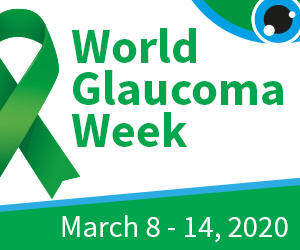As we gradually round up World Glaucoma Week which officially ends tomorrow, we are also giving you the concluding part of our previous discussion on glaucoma.
In the early stages of glaucoma, even though you may have this constant increased pressure on the eyeball, it is not an indication that you necessarily have the disease.
However, the most trusted method of detecting glaucoma is through a methodical eye examination.
The most vulnerable to this eye disease are individuals above the age of 60 and those with a history of the disease in the family.
As it becomes prevalent from age 40 and above, it is required you should have an eye test at least every two years.
Types of Glaucoma
Chronic glaucoma
This is the most common type. In this case, the aqueous fluid over the years blocks the drainage channels.
This makes the eye pressure rise at a slow pace and often times the individual has no pain to indicate that there is a challenge with the eye, however, there is a gradual impairment in the field of vision.
Acute glaucoma
This occurs when there is an unexpected and total obstruction on the aqueous liquid flow to the eye.
This is caused when the narrow-angle fails to open such that fluid is prevented from reaching the drainage channel.
This can be fairly painful and can lead to lasting damage if not attended to on time.
Secondary glaucoma
When there is a rise in the eye pressure, mainly caused by another condition of the eye.
Developmental glaucoma
This type is not common, however, it portends a serious condition in babies which is referred to as congenital glaucoma
Treatment
While the cure to glaucoma has eluded the medical world, the disease if detected early can be treated with a good degree of success, thereby preventing loss of vision.
In the treatment, the pressure mounting on the eye is controlled.
In the case of the acute type, it is treated by administering drugs which may later be followed by surgery or laser treatment.
Chronic glaucoma can be controlled by applying eye drops or sometimes by recommended tablets.
In cases, where vision appears to degenerate, surgery or laser treatment is still the best bet for its control.
Any of these two procedures guarantees a high rate of success.
Does a cure exist?
Note that when the damage is done, it is hardly irreparable, however with early detection, coupled with frequent treatment, the effect of it can be minimized

